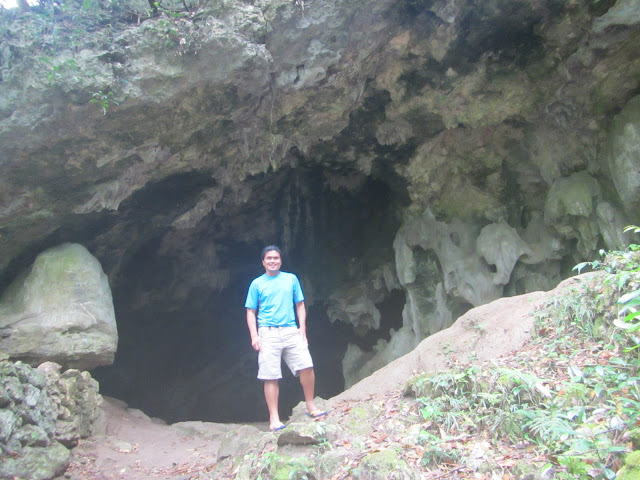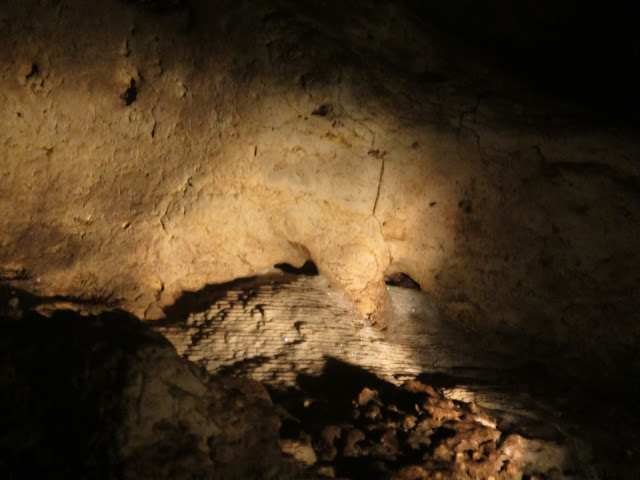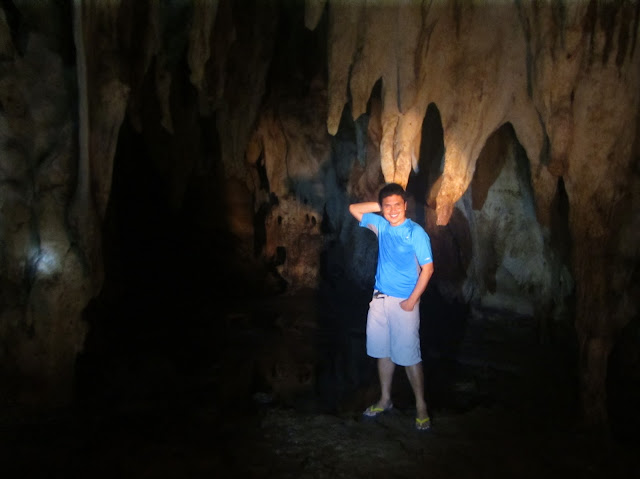Location: Barangay Divisoria Sur, Maddela, Quirino, Philippines
This is a part of my March 25-26, 2016 Quirino Province Tour Package which includes: Aglipay Caves, Siitan River and Bimmapor Rock Formations, Diamond Cave, Scenic Nagtipunan Hills and Cabarroguis Quick Tour.

This is a part of my March 25-26, 2016 Quirino Trip in the afternoon of the first day after we explored the mystical caves of Aglipay. Governor’s Rapids is located in Barangay Divisoria Sur of the municipality of Maddela. So, just on the first day, we were able to set foot on five of the six municipalities of the province of Quirino. This tourist spot got its name from a Japanese general who drowned on it during the Second World War.

Governor’s Rapids is a tributary of the Rio Grande or Cagayan River and is home to the Dumagat Tribe who usually takes shelter under the spaces carved by the water at the base of the limestone cliffs which you will see in most part of it.

There are seven things that you can do while you are communing in this natural setting, namely: (1) take your family and friends for a picnic; (2) a swim along its clean river; (3) boating with a fee, of course; (4) water tubing, a separate fee is charge; (5) spelunking; (6) splash in an approximately 8-meter high Bisangal Water falls inside a nameless cave; and (7) photography – to include prenuptial shots and other purposes.

To avoid bringing with us some food stuff, from Aglipay caves, we dropped in Maddela to have our lunch. It is a big municipality where you can buy the basic things you need. There are banks there, drugstore, commercial centers. We opted to have our lunch in a smal carenderia with sumptuous meal with the most expensive at P70 with softdrinks.

Our drive continued going to the site of Governor’s Rapids for barely 15 minutes from the town proper. And from top where we see the river with limestone walls. God!!! It was so majestic. The whole of it was just like a postcard which came to life. I bended my knees to thank the Mighty Creator!! It was such an awesome creation!!!

After my disarrayed senses normalized, we asked our guide to arrange and paid for the fees as follows: (1) P10 for the entrance fee per head; (2) P80 per head for the boating and caving inclusive of life vest and head gear for a minimum of 2; and (3) P80 for the water tubing in the rapids inclusive of life vest and hear gear for a maximum of three rides.

The fees above for the boating, caving and water tubing are inclusive of guides. Guides for the boating and caving came into three per boat with a full capacity of 12 and for 7 pax in water tubing there is a provision of one guide. Tipping can be at the guests’ discretion.

As you pay, you are given the life vest and fall in line down at the river bank to wait for the availability of the boat. Of course, our group observed the normal tour course. We took a boat for the boating heading to the cave. Oh my!!! The limestone are more splendid at a closer look.

Our boat docked fronting the entrance of the cave. That part of the river was so deep and the current is strong and so even if you have the vest it is still not safe for you to swim there. And wow!!! I was stunned to stay close with the towering limestone walls. Of course, our cameras were endlessly grinding then.

We waited first outside for there is only small number of people allowed inside the cave. As the last batch of guests for a number 12 came out at the other end, we were given our head gear and were instructed by our guide to follow him as he entered the cave in one by one as the passage is really that narrow and low. I was asking the guide where was the opening of the cave and he pointed to me its opening with less than 2 feet high and as wide as 3 feet in approximation. I thought then that it was just at the opening. But mind you, it was not!!! We have to crawl for approximately 30 feet distance in a completely pitch black cave where movement is limited because the ceiling is so low. I panicked at first and begged to go back. The flooring was wet and at some point our feet are dipped in a cold water and in my mind was "what if a flashing water will get inside!!! I might die instantly!!! Oh no!!!" I was in complete commotion deep inside. I want to shout my disapproval but I saw some of my companions religiously crawling and they are not even as experienced spelunker like me. So, I just shut my mouth completely and did the crawling with my mind closely calling God for help that something bad might not happen that moment.

Crawling for as long as 30 feet distance really is a challenge most particularly if you are thinking that some of those who died inside the cave of Bulacan as reported long ago on TV for instance were of the same situation with us at that moment.

Know what!!!! My emotion completely shifted like a change of car’s gear when Bisangal water falls completely unfolded to my stunned wondering eyes. We cheered then like we were victorious in a big competition. It was such a different experience. The falls has a narrow cascading water with a small cold lagoon and the 12 of us frequented to have pictures. It was so enchanting to see the water falls glitters as our flashlights are lit on it.

Staying inside was just too short as there are still others waiting for their turn to get inside the cave and so we exited at the other end of the cave emptying to a very narrow passage leading to the river.

We were given ample time by our guides to stay outside the cave and have a swim. And then we navigated back to our port of origin and waited for our “salva vida” to be used for the water tubing which was on a one-on-one ratio.

It was a long wait like 30 minutes before our group was given our salva vidas. We were seven in the group where our salva vidas were alternately tied and we were maneuvered by our handsome hunk guide, Rogelio Tolentino.

In tubing, we have to trek upstream trailing a grassy part of the river bank for around 60 meters and the launching takes place there. We did this three times. After each launching, Rogelio carries all the salva vidas to the launching port and again, we go with the strong current down. However, in our last trip, only the four of us joined while the three others contented themselves by just having a swim.

HOW TO GO THERE
Below is a comprehensive guide of Lakad Pilipinason how to go to Quirino coming from different points.
There’s no easy way to access Quirino Province from Metro Manila. Directly, one can take a late overnight bus from Metro Manila and arrive at the town of Maddela the next morning. It’s time-consuming but less expensive than taking a one-hour flight from Cebu Pacific Air to Cauayan Airport in the neighboring town of Isabela. From there, one still has to ride a one and a half hour van ride to Cabarroguis, the province’s capital. Alternatively, one can also ride a one-hour flight to Tugeugarao City via Cebu Pacific Air and Philippine Airlines, then board a three-hour van ride to Quirino.
Traveling to Quirino via Metro ManilaVIA METRO MANILA
There are bus terminals in Cubao, Quezon City and Sampaloc, Manila that goes directly to Quirino Province. Most have a daily schedule to the province and usually rides out at night, arriving the next morning. Ticket fares are usually at around Php500.00, give or take, for a one-way trip. Please call the numbers provided for their respective bus schedules.
Five Star – Cubao | (02) 851-6614 | Twice Daily | Fare Php500.00+/-
GV Florida – Manila | (02) 743-3809 & (02) 781-5894 | Fare Php500.00+/-
Nelbusco – Manila | (02) 712 5902 & (02) 743-1332 | Fare Php500.00+/-
Northern Luzon Bus Line – Manila | Fare Php500.00+/-
Cebu Pacific Air - (02) 7020-888
Flies four times weekly to Cauayan, Isabela (plus 1.5 hours van to Cabarroguis, Quirino)
Flies daily to Tuguegarao (plus 3 hours van ride to Cabarroguis, Quirino)
Philippine Airlines - (02) 855 8888
Flies daily to Tuguegarao (plus 3 hours van ride to Cabarroguis, Quirino)
Traveling to Quirino via Baguio CityVIA BAGUIO CITY
There are two known bus companies that ply the Baguio to Quirino Province route, NA Liner and Kiangan Motor Service (KMS) bus lines ((0915) 947-1440, (0999) 849-2106, (074) 304-3113). Both have daily trips to Madella, Quirino.
Traveling to Quirino via BalerVIA BALER, AURORA
Passenger vans, pick-ups and ordinary buses regularly ply the Aurora-Quirino route. These trips last for about three to five hours on the mountainous road of Aurora's Dipaculao municipality.


























